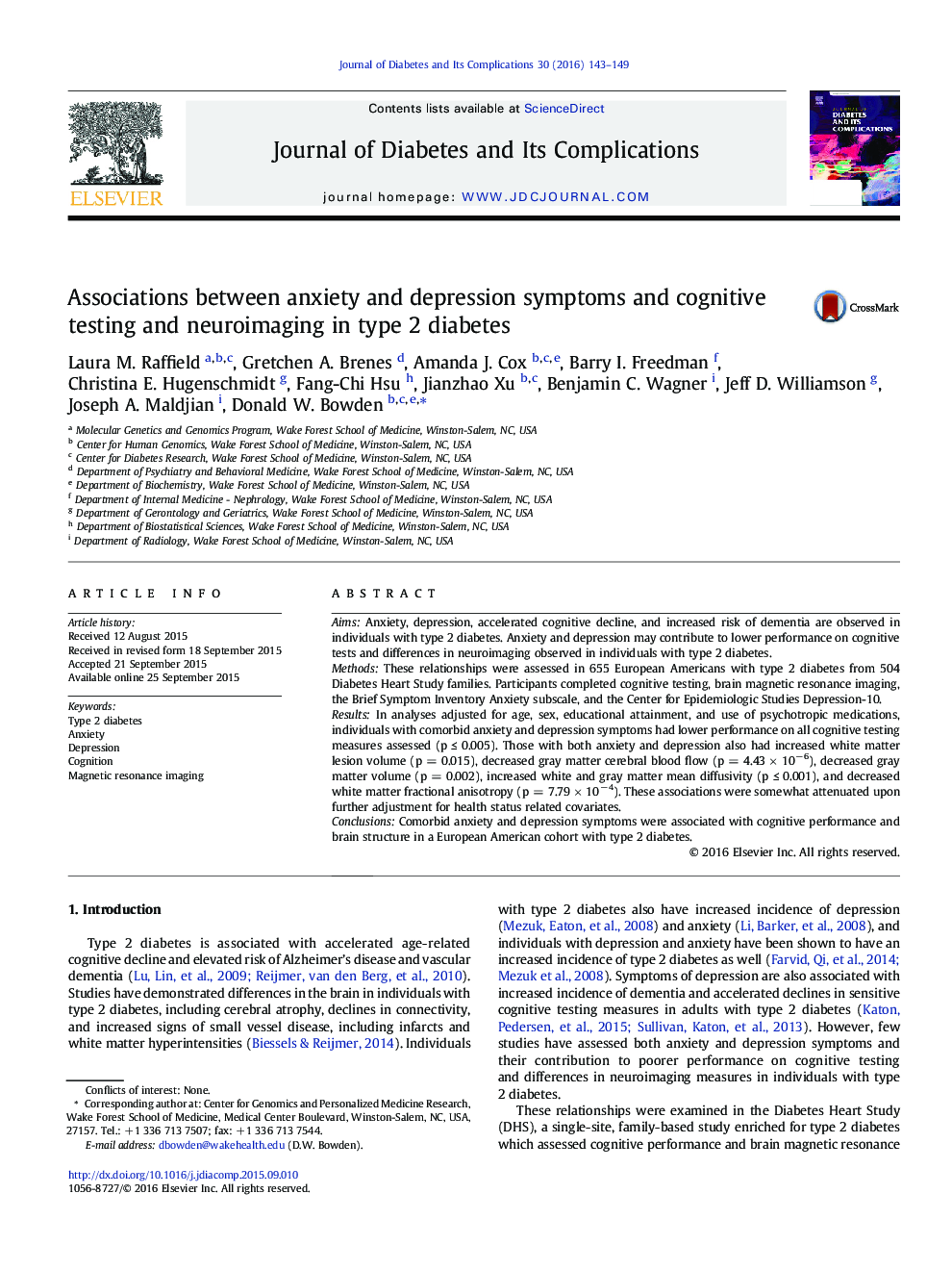| Article ID | Journal | Published Year | Pages | File Type |
|---|---|---|---|---|
| 2804161 | Journal of Diabetes and its Complications | 2016 | 7 Pages |
AimsAnxiety, depression, accelerated cognitive decline, and increased risk of dementia are observed in individuals with type 2 diabetes. Anxiety and depression may contribute to lower performance on cognitive tests and differences in neuroimaging observed in individuals with type 2 diabetes.MethodsThese relationships were assessed in 655 European Americans with type 2 diabetes from 504 Diabetes Heart Study families. Participants completed cognitive testing, brain magnetic resonance imaging, the Brief Symptom Inventory Anxiety subscale, and the Center for Epidemiologic Studies Depression-10.ResultsIn analyses adjusted for age, sex, educational attainment, and use of psychotropic medications, individuals with comorbid anxiety and depression symptoms had lower performance on all cognitive testing measures assessed (p ≤ 0.005). Those with both anxiety and depression also had increased white matter lesion volume (p = 0.015), decreased gray matter cerebral blood flow (p = 4.43 × 10− 6), decreased gray matter volume (p = 0.002), increased white and gray matter mean diffusivity (p ≤ 0.001), and decreased white matter fractional anisotropy (p = 7.79 × 10− 4). These associations were somewhat attenuated upon further adjustment for health status related covariates.ConclusionsComorbid anxiety and depression symptoms were associated with cognitive performance and brain structure in a European American cohort with type 2 diabetes.
